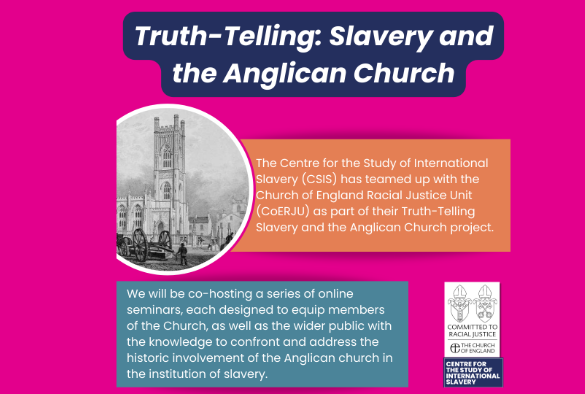University of Liverpool: Centre for the Study of International Slavery Collaborates with Church of England
The University of Liverpool’s Centre for the Study of International Slavery (CSIS) is working with the Church of England to explore the historical involvement of the Anglican church in the institution of slavery.
CSIS are working with the Church of England Racial Justice Unit, supported by Dr Leona Vaughn, (Slavery and Unfree Labour Research Fellow) to equip members of the Church, as well as the wider public, with the knowledge to confront and address this difficult history and the historic role of the church in slavery and colonialism.
This collaboration begins with an online seminar series involving international experts to provide an insight into the breadth of knowledge about the Church’s role in this violent past within and outside of academia.
The opening seminar ‘People not Property, Names not Numbers: the Church and Slavery’, will take place online on Thursday 21 March at 4pm to mark both the International Day for the Elimination of Racial Discrimination (21st March) and International Day of Remembrance of the Victims of Slavery and the Transatlantic Slave Trade (25th March).
This seminar introduces the audience to the historic relationship of the Church and slavery, the people who were impacted by it, who benefited from it and explores the long-lasting legacies of this area.
Professor Stephen Small will be moderating a panel of speakers including Prof Catherine Hall, Prof Robert Beckford, Dr Alice Kinghorn, Dr Rachel Cosgrave and Mr Krzysztof Adamiec.
Dr Mary Booth, Programme Manager for the Centre for the Study of International Slavery said: “We are thrilled to work with the Church of England’s Racial Justice Unit on this programme to bring scholars, academics, and researchers from all backgrounds together to discuss this critical topic.
“This series will contribute to the ongoing work locally, nationally and internationally to uncover the historical role of the church in enslavement and develop understanding of the lasting legacies of this violent past

